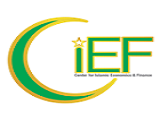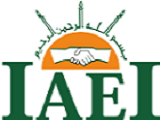Rehabilitation and Reconstruction of the North-East: The Role of Sukuk Financing
Abstract
The Northeast region of Nigeria has been experiencing the devastating impact of Boko Haram insurgencysince 2009, which triggeredhumanitarian crisis and destruction of infrastructure,such as schools, hospitals, roads, bridges as well as homes and farmlands, leading to many becoming internally displaced persons and refugees. Both governmental and non-governmental organizations have been mostly providing relief services and materials, whilst only few Federal Government agencies and State Governmentsare providing reconstruction and rehabilitation due to insufficient sources of funds(Olaseni, 2012).The emergence of Sukuk to Nigerian Capital Market is a new development that provides alternative funding avenue for both State and Federal Governments to finance projects and infrastructure development for nation building (Alaro, 2020).It is against this backdrop that this study aims to reviewthe approaches of financing rehabilitation and reconstruction programmes in the Northeast and examines how the potentials ofSukuk financing could properly be utilized to complement the infrastructural deficit in the region. Thus, the research is an exploratory qualitative research that sourced cross sectional primary data collected through the use of structured questionnaire. Multistage purposive sampling method was employed in selecting the respondents for the study across the study area. Thematic Analysis was employed as the method of data analysis. Both descriptive and inferential statistics were used to summarize and interpret the results of the thematic analyses of the data obtained.
Keywords: North-East, Reconstruction, Rehabilitation and Sukuk Financing
Full Text:
PDFReferences
Abdul-Aziz et al (2014) ‘’ Risk in funding infrastructural project through Sukuk or Islamic bonds’’ Vol. 3 issue .2
Accounting and Auditing Organization for Islamic Financial Institutions (AAOIFI) Rule 17(2)
Adorn, N. Thomas, A. (2004). Islamic Bonds: Your Guide to Issuing, Structuring and Investing in Sukuk. London: Euro moneyBooks
Afshar,T. (2013). Compare and Contrast Sukuk (Islamic Bonds) withConventional Bonds, Are they Compatible?Journal of Global Business Management 9(1)
Alvi, I. (2006), ‘Review on Several Sukuk Products Issued Worldwide’, KLIFF Malaysia
Anuar, M. M., & Adam, F. (2012). Muslim Consumers ’ Perception on Internet Banking Services, 3(5), 63–72.
Ayub M. (2007) “ Understanding Islamic Finance” publish by John Wiley & son Ltd
Braun V., &Clarke V., (2006).Using thematic analysis in psychology.Thematic analysis revised.http://eprints.uwe.ac.uk/11735/1/thematic_analysis_revised_-_final.doc
Cakir, S. and Raei, F. (2007), ‘Sukuk vs. Eurobonds: Is there a difference in Value-at-Risk?’, IMF working paper, WP/07/237Chapra, M. U and Ahmed H. (2002) “corporate governance for Islamic financial institutions” Occasional paper no. 6, Islamic research and training institute, Islamic development bank Jeddah, Saudi Arabia
CBN Half Year Activity Report, 2019
Chaudhry, M. S. (1999), Fundamentals of Islamic Economic System. First Edition, Burhan Education and Welfare Trust. Lahore, Pakistan.
Chik M. N., (2012). Sukuk: Shari’ah guidelines for Islamic bonds. Islamic Banking Operation and Regulatory Framework Workshop, Centre for Banking Studies, Central Bank of Sri Lanka.
Debt Management Office [DMO]. (2017). FGN DebutSukuk Offer Oversubscribed. Press Release, September,26. Retrieved from: http://www.dmo.gov.ng/fgnbonds/sovereign-Sukuk
DMO (2011) Annual report p. 12-14, Nigeria.
Hanefah, M. M., &Sains, U. (2013).Sukuk : global issues and challenges. Journal of Legal,Ethical and Regulatory Issues, 16(1), 107–120.
IIBI, (2019).Glossary of Financial Terms. United Kingdom https://www.islamic-banking.com/explore/glossary/glossary-financial-terms-s retrieved 30th August, 2019
ISRA (2014) ‘‘Islamic financial system principles and operations ‘’ Lorong university A Kuala lumpur Malaysia pp. 389-443
Lotus Capital, (2014).DMO to encourage Sukuk bond in Nigeria, https://www.lotuscapitallimited.com/index.php/78-news/134-dmo-to-encourage-Sukuk-bond-in-nigeria 30-Dec-19
Obaidullah, M(2005) “Islamic financial markets” Islamic economics research Centre, king Abdul-Aziz University Jeddah Saudi Arabia
Oladele, M.O (2014). Sukuk as a tool for infrastructural development in Nigeria, https://www.researchgate.net/publication/299398297_SUKUK_AS_AN_ALTERNATIVE_SOURCE_OF_FUNDS_FOR_NIGERIAN_GOVERNMENT [accessed May 30 2020].
Oladunjoye, M. O. (2014). Sukuk as a Tool for Infrastructural Development in Nigeria.Journal of Islamic Banking and Finance, 2(1), 335–344.
Olaniyi, O. N., Echchabi, A. G. and Alfarisi, M. F. (2013), Sukuk as An Alternative Mechanism for Infrastructure Development and Improvement of Small Businesses in Nigeria, a paper published in ‘Essentials of Islamic Banking and Finance in Nigeria’ edited by Dandago, K. I., Muhammad, A. D., and Oseni, A. U., by Benchmark Publishers Limited, Kano, Nigeria.
OlaseniM.Alade (2012) “Vision 20:2020 and the challenges of infrastructural development in
Salisu, Y. (2015).Sukuk as an Alternative Source of Funding Infrastructural Development in Nigeria, 2nd IIIBF conference, BUK, Kano
Securities and Exchange Commission, Nigeria, Corporate Bonds Issued in Nigeria (1960 to 2013). [Online] Available: http://www.sec.gov.ng/corporate-bonds-issued-%281960- to-2013%29.html (December 16, 2013).
Securities Commission Malaysia.(2004). Guidelines on the Offering of Islamic Securities.Kuala Lumpur: Securities Commission.
Usmani, M. T (2008) Sukuk and their contemporary applications.www.failaka.com/downloads/usmanSukukapplications.pdf.
Wilson, R (2007) ‘’the development of Islamic finance in the GCC “.Kuwait the Centre for the study of global governance.
Wilson, R. (2004), “Overview of the Sukuk market” in Adam, N.J. and A. Thomas (eds.), Islamic Bonds: Your Guide to Issuing, Structuring and Investing in Sukuk, Euromoney Books, London
DOI: http://dx.doi.org/10.24042/febi.v5i2.7667
Refbacks
- There are currently no refbacks.
Copyright (c) 2020
Ikonomika : Jurnal Ekonomi dan Bisnis Islam is a Journal of Islamic Economics and Business, Published by the Faculty of Islamic Economics and Business at UIN Raden Intan Lampung Indonesia. This work is licensed under a Creative Commons Attribution-ShareAlike 4.0 International License.






11.png)


